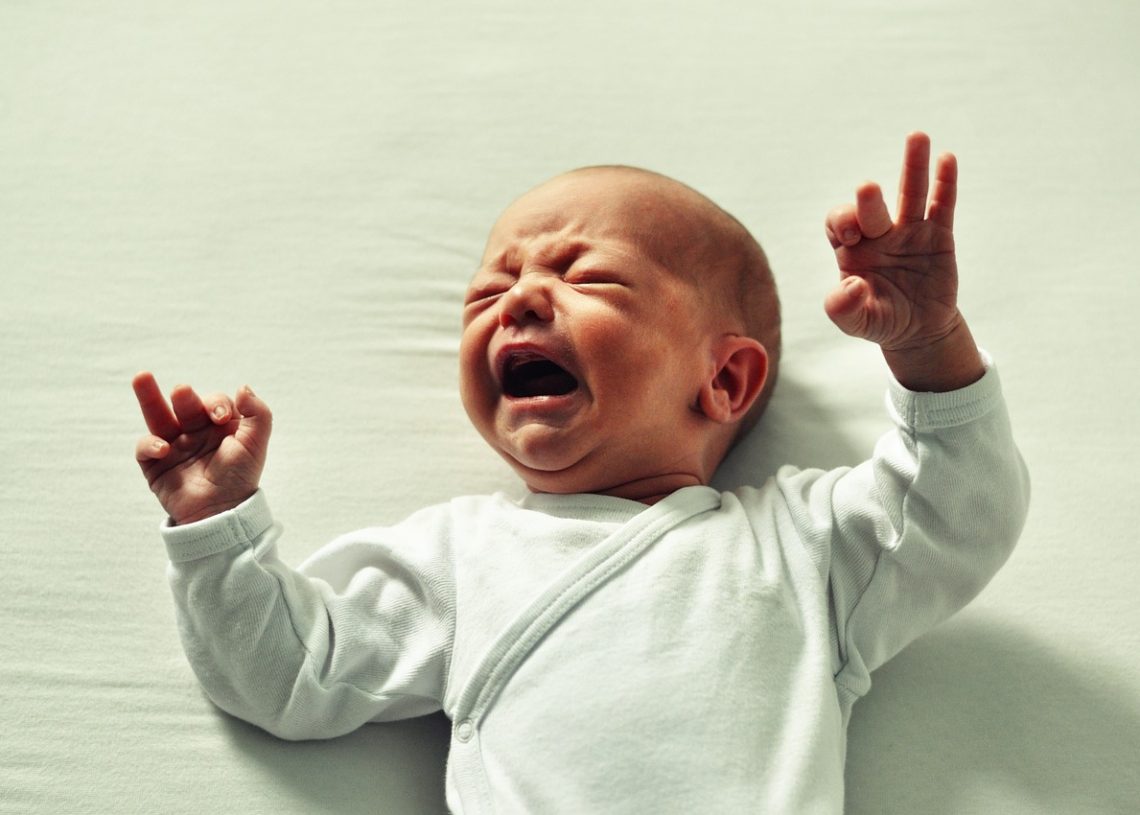Key Notes
- Newborn babies can suffer from a range of different diseases
- Never take any of the symptoms lightly
- Some of the major diseases found in newborn babies are flu, fever, skin problems, jaundice in addition to many others
Many parents are not aware of the many diseases that can affect their newborn baby.
You should always ask your pediatrician if any new symptoms show up, or if there is anything unusual with your baby’s health.
The following article discusses 12 common newborn baby diseases, including what they are and how to treat them!
1) Fever
Newborns normally have a low body temperature of around 97 degrees Fahrenheit. It is normal for their temperatures to go up and down during the day, but it should return to its usual levels at night.
If your baby’s fever reaches 100-101 degrees you need to call the doctor immediately because this could be an indication that there might be some kind of infection in his/her system.
You should consult your child’s doctor to get rid of this issue. Another important thing when dealing with fevers is making sure that your child does not become dehydrated due to sweating.
2) Baby Acne
Most newborns have some kind of baby acne during the first few weeks. However, it is important to know that if your baby’s acne is not improving, it could be a sign of an infection.
You can help your baby get rid of the problem by keeping his/her head clean and by not putting anything on his/her face. If the baby acne doesn’t go away within a week you should consult your pediatrician to find out what kind of treatment would be best for your child.
3) Jaundice
Newborns are sometimes born with jaundice, which appears as yellowing of their skin due to too much bilirubin in their blood stream.
The condition is very common among newborns because they have an immature liver that has difficulty removing this substance from the body.
Jaundiced babies usually look perfectly healthy otherwise, so it’s important not to panic if you notice some changes in their coloration.
During the first few days after birth most children will develop mild jaundice which will resolve itself after a few days.
If the jaundice is more severe you should consult your doctor to find out how best to treat it.
4) Measles
The measles are caused by the rubeola virus, which will typically get passed to your child through contact with an infected person.
During this period it is important that you keep him/her isolated until the doctor confirms that he/she does not have any symptoms of the disease anymore. If you notice some signs of illness in your baby make sure to call his pediatrician immediately so they can start treatment right away.
5) Mumps
Mumps are another common condition that children can get in their early years. The mumps usually come with flu-like symptoms, including swollen glands and pain/swelling in the jaw area.
It is important to consult your pediatrician if you notice any changes in your baby’s health because he/she will need to be treated right away so they don’t develop serious complications like meningitis or swelling of the testicles (or ovaries).
6) Chicken pox
The chicken pox virus spreads very easily from person to person through contact with an infected individual, which makes it extremely easy for a child who has not been vaccinated against this disease yet catch it as well.
You should keep your newborn at until you have confirmed that there are no signs of the disease. If your baby shows mild symptoms, keep him/her isolated for a couple of days until they go away by themselves and don’t develop any serious complications.
7) Influenza
The flu is a respiratory condition that usually comes with cold or allergy symptoms, so it can be hard to distinguish from other common conditions.
If your baby has signs of the disease you should keep him/her isolated for at least 24 hours after the fever goes away because during this period he/she could still infect others through coughing and sneezing.
The good news is that if your child gets the flu vaccine before they are six months old their chances of catching this disease will go down significantly.

8) Pneumonia
Newborns sometimes suffer from pneumonia which appears as inflammation in one or both lungs due to an infection by viruses, bacteria or fungi.
Pneumonia usually occurs when bacteria enters the body via droplets spread out through coughs or sneezes, so it is very important to keep your baby away from people who are sick with the flu or other respiratory infections.
9) Hand Foot and Mouth Disease
The hand foot and mouth disease is a common condition among infants which usually starts with flu-like symptoms, including fever or chills. After that it gets followed by sores in the baby’s mouth, throat and on their hands and feet.
This virus can spread very quickly from one child to another through contact with objects they have touched (such as toys) so if you notice any changes in your baby’s health make sure to call your pediatrician right away.
10) Ear Infection
The ear infections are usually caused by viruses or bacteria, which can sometimes come with other conditions like the cold.
If your baby starts suffering from pain in their ears that doesn’t go away after a few days you should call his pediatrician because this could be an indication of infection.
11) Bronchiolitis
Bronchiolitis is another respiratory condition that typically comes with fever and dry coughs, so it might be difficult to notice at first if your child has developed something more serious than just a common cold.
The good news is that bronchiolitis isn’t contagious but it can develop into pneumonia if not treated right away through antibiotics, oxygen therapy or breathing treatments depending on how severe the symptoms are.
12) Strep Throat
Strep throat is one of the most common causes of sore throats in children, especially during cold weather when respiratory infections are more frequent.
If you notice that your baby has a fever and swollen tonsils accompanied by white or yellow spots on their tonsils it might be strep throat so make sure to call his pediatrician for an appointment right away.
Final Words
There are many different conditions that babies can get sick with, but luckily most of them aren’t contagious. If you notice any changes in your baby’s health make sure to call his pediatrician right away so they can prescribe the necessary treatment and reduce the risk of complications.
Research on vaccinations and get your child all the right vaccination. Newborn children have enough immunity to fight a lot of these different conditions but it is very important to be careful if your newborn baby is showing any unusual symptoms.
As your child grows, so will their immunity and their body will be able to fight a lot of these diseases.




























